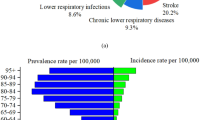Abstract
Heart Failure is a syndromal disease affecting about 2% of the world’s adult population and about 10% of adults over 70 years of age. Because of the progressive nature of this disease, continuous and close monitoring of disease progression is an important approach to managing patient quality of life once data suggest that patients who develop Heart Failure have difficulty maintaining self-care routines. The use of technology to assist physicians and patients in managing Heart Failure offers great opportunities related to the challenges of managing the disease. Several papers have shown that the use of follow-up protocols by patients from Heart Failure reduces hospital readmissions by approximately 26%. Therefore, regular follow-up of patients is crucial to keep the disease stable and maintain the quality of life of these people. However, through the use of technologies like electronic follow-up protocols and Decision Support Technologies, disease management could be more assertive and precise. For this reason, in this paper we present an overview of how prognostic variables can be important for system development and patient monitoring.
Supported by organization PPG-EBM/UFABC.
Access this chapter
Tax calculation will be finalised at checkout
Purchases are for personal use only
Similar content being viewed by others
References
Ponikowski, P., et al.: Heart failure: preventing disease and death worldwide. ESC HFA Paper 1, 4–25 (2014)
Bocchi, E.A., et al.: Iii diretriz brasileira de insuficiência cardíaca crônica. Arq. Bras. Cardiol. 93, 3–70 (2009)
Savarese, G., Lund, L.H.: Global public health burden of heart failure. Radcliffe Cardiol. 3, 7–11 (2017)
Yancy, C.W., Jessup, M., Bozkurt, B., et al.: 2013 ACCF/AHA guideline for the management of heart failure. J. Am. Coll. Cardiol. 62, e147–e239 (2013)
Benjamin, E.J., Blaha, M.J., Chiuve, S.E., et al.: Heart disease and stroke statistics–2017 update: a report from the American heart association. Circulation 135(10), e146–e603 (2017)
Brazilian Cardiology Society Department of Heart Failure: Rationale and design: breathe registry - i Brazilian registry of heart failure. Arq. Bras. Cardiol. 100, 390–394 (2013)
Bocchi, E.A., Arias, A., Verdejo, H., et al.: The reality of heart failure in Latin America. J. Am. Coll. Cardiol. 11, 735–1097 (2013)
Jaarsma, T., Stromberg, A., Gal, T.B., et al.: Comparison of self-care behaviors of heart failure patients in 15 countries worldwide. Patient Educ. Couns. 92, 114–120 (2013)
Iyamu, T.: A framework for selecting analytics tools to improve healthcare big data usefulness in developing countries. S. Afr. J. Inf. Manage. 22, a1117 (2020)
Cankaya, E.C., Kywe, T.: A secure healthcare system: From design to implementation. Dallas Dept. Comput. Sci. Univ. Tex. 1, 203–212 (2015)
Franchi, D., Cini, D., Iervasi, G.: A new web-based medical tool for assessment and prevention of comprehensive cardiovascular risk. Dipartimento Oncol. Univ. Pisa 7, 59–68 (2011)
Cabana, M.D., Rand, C.S., Powe, N., et al.: Why don’t physicians follow clinical practice guidelines? a framework improvement. Am. Med. Assoc. 282, 1458–1465 (1999)
World Health Organization, February (2022)
Hsieh, V., Paull, G., Hawkshaw, B.: Heart failure integrated care project: overcoming barriers encountered by primary health care providers in heart failure management. Aust. Health Rev. 44, 451–458 (2020)
Sharma, A., Harrington, R.A., McClellan, M.B., et al.: Using digital health technology to better generate evidence and deliver evidence-based care. J. Am. Coll. Cardiol. 71, 2680–2690 (2018)
Mintu T., Perez, M.V.: Apple heart study: Assessment of wristwatch- based photoplethysmography to identify cardiac arrhythmias, February (2017)
Blue Star Diabetes. Blue star diabetes (2022)
Abbott Inc., Freestyle libre, February (2022)
U.S. Food & Drug Administration (FDA). Clinical and patient decision support software: Draft guidance for industry and food and drug administration staff, December (2022)
da Rosa, C.D.P., Mathias, D., Rovai, R.L.: Sistemas de informação na Área da saúde: A informação clínica como instrumento de trabalho para os profissionais de saúde. Polêm!ca, 15, 035–050 (2015)
Author information
Authors and Affiliations
Corresponding author
Editor information
Editors and Affiliations
Rights and permissions
Copyright information
© 2023 The Author(s), under exclusive license to Springer Nature Switzerland AG
About this paper
Cite this paper
Dias, A.D.S., Almeida, F.N. (2023). The Importance of Prognostic Variables to Monitoring Heart Failure Using Health Management Systems. In: Wen, S., Yang, C. (eds) Biomedical and Computational Biology. BECB 2022. Lecture Notes in Computer Science(), vol 13637. Springer, Cham. https://doi.org/10.1007/978-3-031-25191-7_25
Download citation
DOI: https://doi.org/10.1007/978-3-031-25191-7_25
Published:
Publisher Name: Springer, Cham
Print ISBN: 978-3-031-25190-0
Online ISBN: 978-3-031-25191-7
eBook Packages: Computer ScienceComputer Science (R0)




